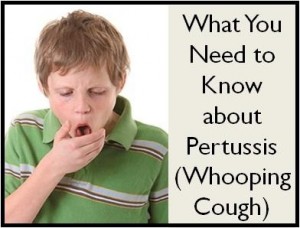 Whooping cough, or pertussis, is a serious disease that affects the respiratory system. It is caused by the bacteria B. pertussis and though its effects are typically short-term in children and adults, it is of special interest because the effects on babies can be severe and even fatal. You may have noticed that in recent years there has been an increase in the cases of whooping cough in the United States, making awareness and vaccination even more essential.
Whooping cough, or pertussis, is a serious disease that affects the respiratory system. It is caused by the bacteria B. pertussis and though its effects are typically short-term in children and adults, it is of special interest because the effects on babies can be severe and even fatal. You may have noticed that in recent years there has been an increase in the cases of whooping cough in the United States, making awareness and vaccination even more essential.
Whooping cough is extremely contagious and the best way to ensure your children do not contract it is to be sure you, your family, and any caretakers that are around your children are fully vaccinated. The disease can be transmitted easily through droplets. When an infected person coughs, sneezes, or even laughs, the people around them breathe in those droplets and can also become infected. There are two vaccines available that are administered depending on your age: DTaP for children younger than 7 and Tdap for all other individuals.
At first, whooping cough appears in much the same way as a common cold: a person may have
- A low-grade fever
- Runny nose
- Watery eyes
- A mild cough.
After 7-10 days, however, the symptoms increase in severity. The telltale sign of whooping cough is extended, violent fits of coughing that are sometimes followed by a high-pitched “whoop” sound as the person struggles to fill their lungs with air. When babies are affected, many times they don’t make the whooping sound but have difficulty breathing; they can actually stop breathing from the disease.
Babies infected with whooping cough can also experience very serious complications like pneumonia. Around half need to be hospitalized. Again, the best way to prevent your baby from contracting pertussis is to follow the vaccination recommendations by the CDC (LINK: http://www.cdc.gov/vaccines/parents/downloads/parent-ver-sch-0-6yrs.pdf).
Children or adults affected by whooping cough may suffer from vomiting after coughing spells, dehydration, exhaustion, and even broken ribs from the violent coughing. Antibiotics are used to treat the disease and may also be prescribed to family members of the affected person to try to prevent transmission.
While vaccinations are the best method of prevention, remember that they are not perfect. In addition, the whooping cough vaccine loses effectiveness over time, so booster shots are available for children and adults who have already completed the vaccine series. Ask your doctor if a booster shot is right for you. If you’re pregnant, you will need a vaccine in your last trimester to help your baby develop short-term protection against whooping cough.
Be sure to review your family’s immunization history so you can rest assured you are all as protected from whooping cough and other preventable diseases as possible. Urgent Care is able to help you with all of your vaccination needs, so let us know if you have any questions!
